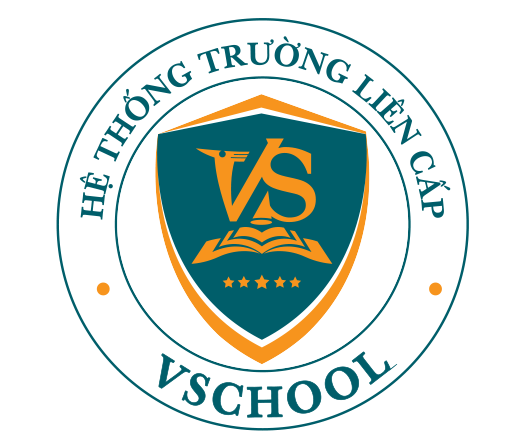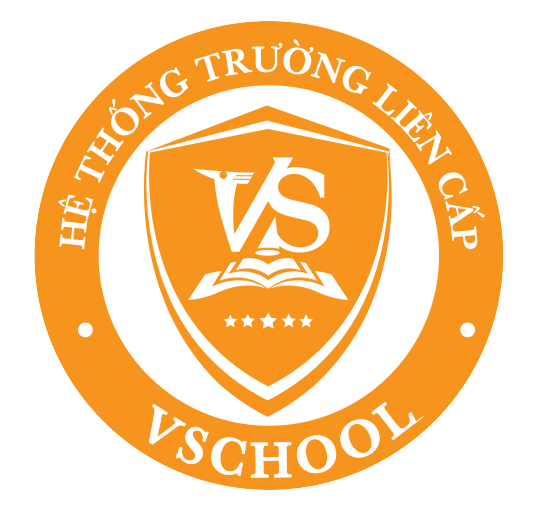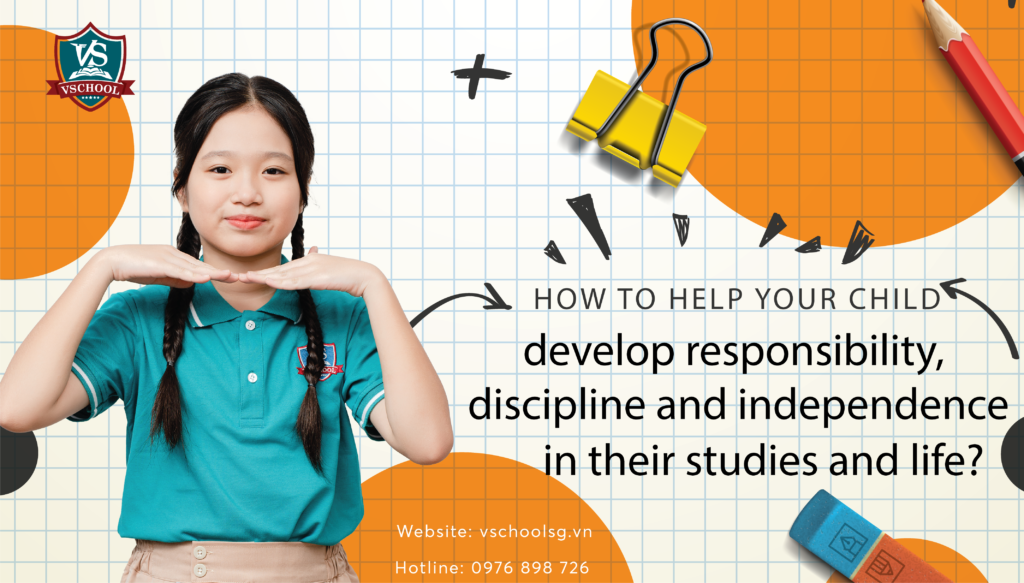In today’s digital age, nurturing qualities like responsibility, discipline, and independence in children is crucial. These qualities help them develop comprehensively, combining knowledge, skills, good attitudes, and a positive mindset. In this article, VSchool will introduce some methods to help students form a sense of responsibility, discipline, and independence.
Creating a Positive Learning and Living Environment for Children
The environment greatly influences the formation and development of individuals. A positive environment makes children feel comfortable, happy, confident, and motivated to study and work. Conversely, a negative environment can make them feel pressured, anxious, lacking in confidence, and disinterested in studying and working. Therefore, parents should create a positive learning and living environment for their children by:
- Respecting, listening to, and encouraging their children, avoiding harsh words, criticism, or comparisons with others.
- Providing opportunities for children to express themselves, explore, and develop their interests, talents, and passions.
- Encouraging children to participate in extracurricular, sports, artistic, volunteer activities, etc., to foster physical health, teamwork skills, and team spirit.
- Helping children establish a balanced study and activity schedule, balancing study, rest, and recreation.
- Allowing children to interact with positive influences such as friends, teachers, siblings, etc., to learn from and exchange experiences.
Teaching Children Awareness and Consciousness of Responsibility
Responsibility means fulfilling duties with awareness and without blaming or pushing tasks onto others. Responsible individuals take accountability for their actions, strive to complete their tasks well, and do not give up or become lazy. To teach children awareness and consciousness of responsibility, parents can:
- Set an example by living responsibly, avoiding hypocrisy or deceit towards their children or others.
- Explain to children the meaning and importance of responsibility, as well as the consequences of irresponsibility.
- Assign age-appropriate tasks to children, such as caring for pets, tidying their rooms, helping parents, etc., and monitor, remind, and evaluate their results.
- Praise and reward children when they fulfill their responsibilities well, and remind and admonish them when they fail to fulfill their responsibilities.
Guiding Children in Self-Study and Self-Reliance
Self-study and self-reliance are essential skills for children to become independent in their studies and lives. Individuals who study and act independently proactively seek, process, and apply information without depending on or waiting for others’ help. This fosters creativity and flexibility in problem-solving, free from constraints or predefined norms. Gradually, children will gain confidence and autonomy in decision-making, unaffected by others’ opinions or pressures. To guide children in self-study and self-reliance, parents should:
- Lead by example by studying and acting independently, not fearing difficulties or failures. Encourage children to learn from experts without blindly copying them.
- Explain to children the benefits and methods of self-study and self-reliance, as well as the potential risks. Help children set goals, needs, appropriate learning methods, evaluate and improve their learning outcomes.
- Provide children with resources, tools, and study aids. Encourage them to seek, analyze, and apply information from multiple sources while verifying information carefully.
- Monitor, remind, and support children in their learning process, respecting their privacy, creativity, and choices, while guiding and providing feedback when necessary. Praise and reward children for progress, effort, initiatives, or successes in learning, and encourage and comfort them when they encounter difficulties, failures, or mistakes in their studies.
Encouraging and Supporting Children in Their Learning and Living Process
Encouragement and support are crucial factors in helping children grow. Through praise, rewards, and encouragement, children feel cared for, loved, trusted, and proud of themselves. Therefore, parents should:
- Praise and reward their children for their achievements, progress, and efforts in both learning and life, regardless of size.
- Encourage and comfort their children when they face difficulties, failures, or mistakes in learning and life, helping them find ways to overcome and surpass challenges.
- Create a warm, cheerful, comfortable family or classroom atmosphere where children can share, express emotions, opinions, and desires without imposition, coercion, or judgment.
- Respect and encourage children to make decisions regarding themselves, their studies, and their lives, as long as they do not violate laws, ethics, or common interests.
Responsibility, discipline, and independence are crucial qualities for children to thrive in modern society. To help children develop these qualities, parents and educators should apply the methods introduced by VSchool.
If parents want more information about the teaching programs and methods of VSchool Middle School, they can visit or contact us via phone or our website:
- Address: No. 1, Street No. 1, An Lac A Ward, Binh Tan District, Ho Chi Minh City
- Phone number: 0976 898 726
- Website: https://vschoolsg.vn/




